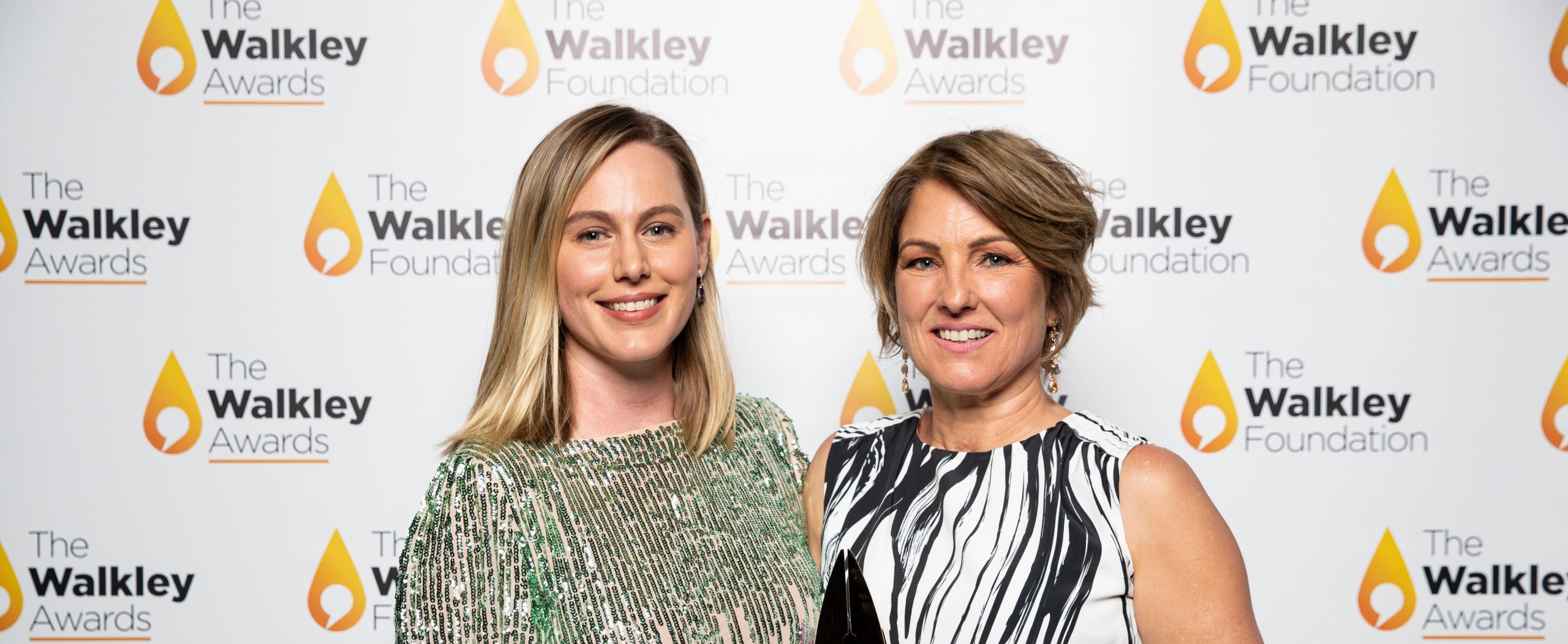Anne Connolly, Stephanie Zillman and Ali Russell won the Walkley Award for Public Service Journalism for their Four Corners report “State Control”, which lifted the lid on those affected by the repressive Public Guardian and Trustee system in Queensland. Their courageous reporting ultimately won them the 2022 Gold Walkley.
The trio reflected on their win and the importance of public interest journalism with the Walkley Foundation’s Clare Fletcher.
What impact did “State Control” have on the Public Guardian system in Queensland and those whose lives were affected by it?
“The day after our story, Queensland’s Attorney General announced two inquiries and made a public apology for the practices of the state’s Public Trustee. The disability royal commission also announced a week of hearings focusing on guardianship and administration around the country. Over 500 people emailed to thank us and to share their own stories, which continue to flow in. Five months later, Queensland’s disability watchdog, the Public Advocate, recommended the Government lift the gag laws which stop people from identifying themselves and speaking to the media, citing the impact of the “State Control”.
What made you want to be a journalist?
Anne: When I was younger, I was an avid reader and writer so I felt print journalism was a natural fit. I also had a love of films and particularly documentaries so I was thrilled to nab a job at the ABC.
Ali: I remember watching documentaries at a young age and just feeling so incredibly moved by them and having a sense that this medium had such power to convey a story that opens people’s eyes to issues or injustices or perspectives they might know nothing about. As humans we are so innately curious about each other and being able to build a compelling and empathetic window into another person’s world or dig into an issue and expose wrongdoing in a way that makes people care about it. I think is the best job in the world.
Stephanie: Initially it was the thought of going to work every day and not knowing what would happen. It was the excitement of the unknown and having a front seat to history being made in real time. As my career has developed, I think I wasn’t far off the money. While not every day is beating doors down, when you do, there’s no greater feeling.
What are you most proud of about the stories you’ve told?
Anne: Naturally when a story causes an inquiry or changes policy, it does feel like a win. Equally, simply raising an issue which affects many thousands of people and raising awareness is rewarding if it leads greater empowerment. I enjoy seeing the knock on effects of a story and hearing from people for whom it has made a difference. It could be years down the track but when I hear of reform which can be linked back to a story, it’s a great feeling.
Ali: I think those times where a story has had a real-world impact – whether that be triggering a government inquiry or forcing a corporation to clean up its practices – are incredibly rewarding, and a reminder of the importance of this work. But also any story that gives a platform to disempowered or forgotten people in society is one of the most important things we do. Raising those voices up is the work I feel proudest of.
Stephanie: There are certain stories that just get under your skin. You care about the outcome as much as anything in your life, you live and breathe it and speak to the players involved more than your own family! When the talent in those stories trusts you to do it justice, that’s when I feel truly proud of my work and like I’m making a contribution.
What’s your message to Australians about why quality journalism needs their support?
Journalism is called the fourth estate for a reason. Our only duty is to inform, raise awareness and – most importantly — investigate. So many people get their news through social media now and we need to adapt to that. But it is equally important that the public understand how crucial it is to have trusted news sources to ensure a working democracy. That might mean subscribing to one service.
What’s next for the three of you?
Anne: I continue to work on stories about the Public Guardian and Trustee for many programs at the ABC. It’s an area which is not well understood because of the gag laws preventing those “under orders” from speaking out. There are many layers to it – including how doctors determine capacity and how the tribunals use that information.
Ali: Since “State Control” story aired, I’ve produced another three Four Corners stories – an investigation into Aspen Medical, the health contractor hand-picked by the Morrison government for lucrative contracts worth more than a billion dollars, with Linton Besser; and two observational documentaries with Louise Milligan – one following newly elected independents as they prepared to sit in parliament for the first time, and another on homelessness and Australia’s housing crisis.
Stephanie: I have stayed on at Four Corners as a researcher, taking a break from my former role in daily news. I’m excited to work alongside the best journalists in the country, and I’m looking forward to the year ahead where we’ll continue to put out agenda-setting journalism.
Anne: “State Control” was a huge team effort which included cameraman Ryan Sheridan, editor Guy Bowden and digital producer Laura Gartry. Our legal team, led by Corey Jankie, and the work of ABC accountant William Creamer, was invaluable. The power of the story came from everyone working together with the same goal – to shine a light on a social policy that was unknown to most Australians. It’s stories like these which can help initiate much needed reform.
Watch the 2022 Gold Walkley Winnners speech


